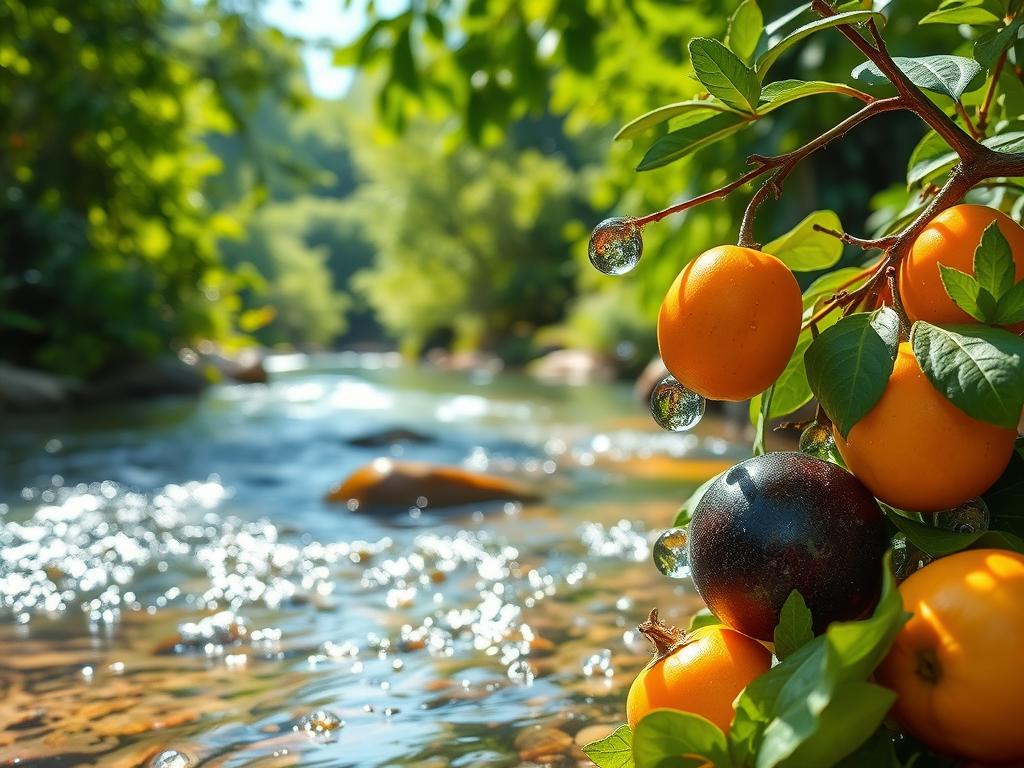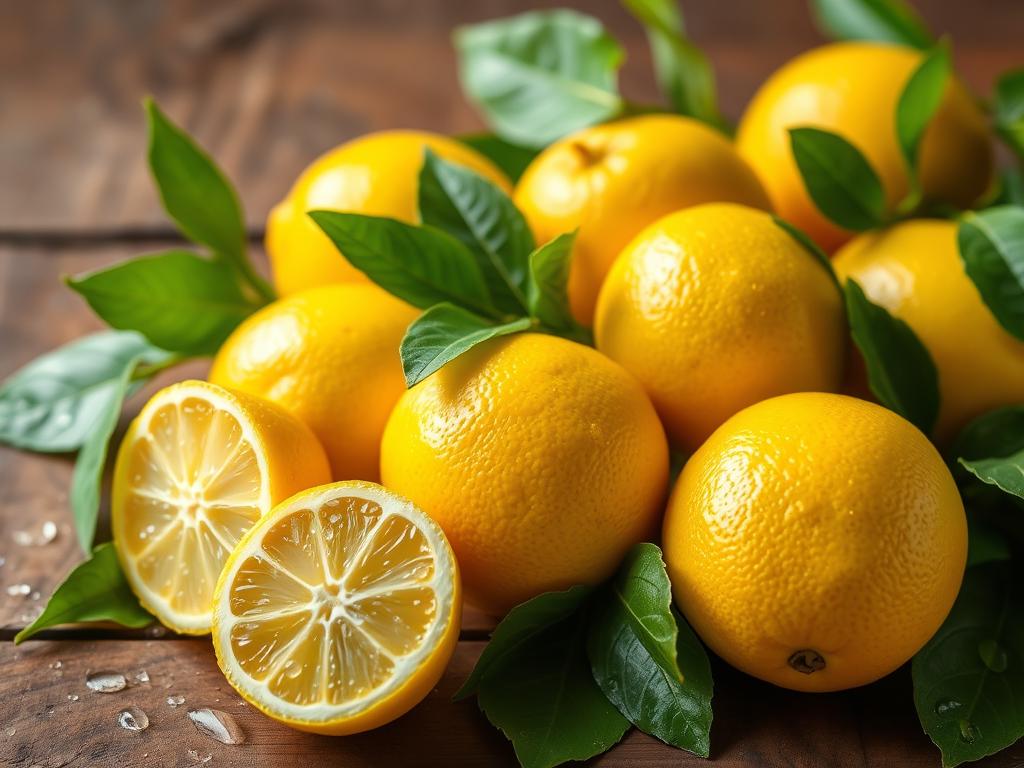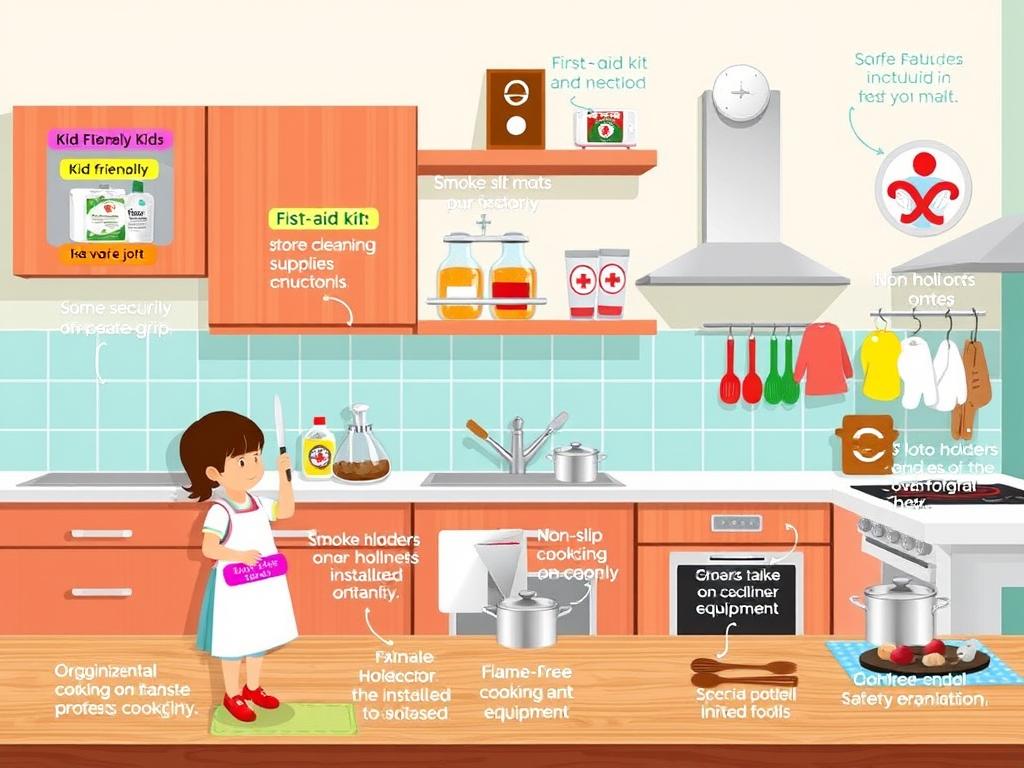Did you know that approximately 60% of the human body consists of water? This essential element plays a crucial role in various bodily functions, from temperature regulation to joint lubrication. Despite its significance, many individuals fall short of the recommended daily water intake levels. The U.S. National Academies of Sciences, Engineering, and Medicine suggests an intake of about 15.5 cups (3.7 liters) for men and 11.5 cups (2.7 liters) for women. However, factors such as health, physical activity, and climate significantly influence these figures.
As we dive deeper into the importance of drinking water, it’s essential to understand how staying hydrated can enhance our overall well-being. Establishing optimal water intake can lead to improved physical performance, better mood regulation, and even enhanced cognitive function. Are you ready to explore how much water you truly need for optimal health?
Key Takeaways
- Water is vital, comprising around 60% of the human body.
- Daily water intake recommendations suggest 15.5 cups for men and 11.5 cups for women.
- Hydration needs vary based on factors like age, gender, and activity level.
- Staying hydrated can improve physical performance and cognitive function.
- Fresh fruits and vegetables contribute significantly to daily water needs.
Understanding the Benefits of Staying Hydrated
Staying hydrated not only supports daily functions but also offers numerous health benefits. Adequate hydration is essential for improved physical performance, enhanced cognitive functions, and mood stabilization. Embracing the benefits of hydration can significantly transform your overall health and well-being.
Improved Physical Performance
Maintaining hydration plays a critical role in physical performance. Water helps regulate body temperature and maintain electrolyte balance. Athletes often notice enhanced endurance and strength when adequately hydrated. Consuming sufficient water can lead to performance improvements, especially during intense training or prolonged activities. Following hydration guidelines can prevent fatigue and muscle cramps during workouts.
Enhanced Brain Function
Staying hydrated impacts cognitive functions positively. Research indicates that even mild dehydration can impair concentration, memory, and overall cognitive abilities. The health benefits of drinking water extend to better focus and sharper mental clarity, which can boost productivity. Drinking enough fluids throughout the day fosters a responsive and efficient brain, allowing for improved problem-solving skills.
Better Mood Regulation
Hydration significantly influences mood regulation. Dehydrated individuals may experience fatigue and irritability, adversely affecting emotional well-being. Research shows that staying hydrated can reduce mood disturbances and promote an overall positive outlook. Incorporating hydration efforts in daily routines can lead to a brighter disposition and improved mental resilience.
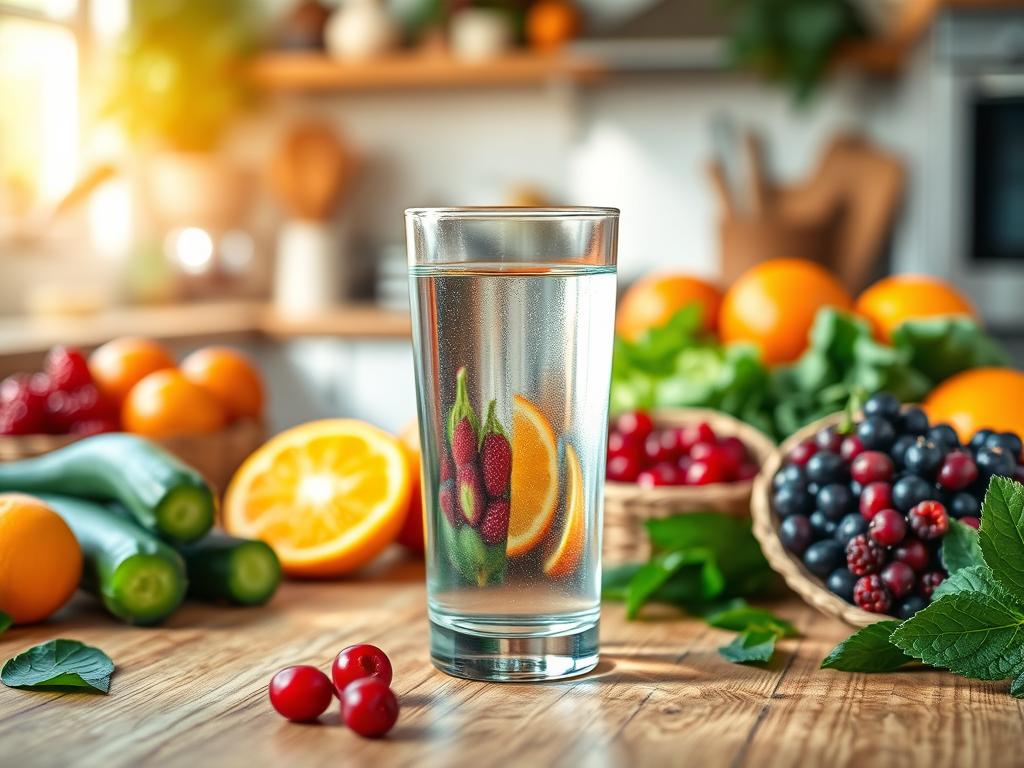
For further insights into additional morning beverages that can aid in weight loss and hydration, consider checking out this informative resource on weight loss morning drinks. Emphasizing water intake not only enhances physical and mental performance but also directly correlates with emotional stability and improved health outcomes.
Daily Water Intake Recommendations
Understanding daily water intake recommendations is essential for maintaining optimal health. Different factors influence water needs, varying significantly from one individual to another. General guidelines suggest healthy adults require around 8 to 13 cups of fluid daily. For men, approximately 13 cups or 104 ounces is recommended, while women should aim for about 9 cups or 72 ounces. Pregnant and breastfeeding women have higher hydration requirements, needing 10 cups and 13 cups, respectively.
General Guidelines
Establishing proper hydration habits can bolster overall health. While the “eight 8-ounce glasses of water a day” rule is somewhat widespread, it is not a one-size-fits-all solution. Individual needs may depend on:
- Physical activity level: Active individuals often need to increase their daily water intake.
- Body size: Larger individuals generally require more fluids than smaller counterparts.
- Climate conditions: Hot and humid environments demand additional hydration.
- Diet: A diet high in caffeine or salt can require increased fluid consumption.
Factors Influencing Water Needs
Multiple factors influence water needs, making it vital to assess personal circumstances. Age is a particularly important element, with varying hydration recommendations across different stages of life. For instance:
| Age Group | Daily Water Intake (Cups) | Daily Water Intake (Ounces) |
|---|---|---|
| 1-3 years | 4 | 32 |
| 4-8 years | 5 | 40 |
| 9-13 years | 7-8 | 56-64 |
| 14-18 years | 8-11 | 64-88 |
| Men (19 and older) | 13 | 104 |
| Women (19 and older) | 9 | 72 |
| Pregnant women | 10 | 80 |
| Breastfeeding women | 13 | 104 |
Age and Gender Considerations
Age and gender play crucial roles in personal hydration needs. Older adults may require less fluid due to decreased thirst perception. Understanding these variations ensures effective planning for daily water intake. Awareness of dehydration symptoms can help maintain a healthy fluid balance. Symptoms such as fatigue, confusion, and dizziness may indicate that more water is needed.
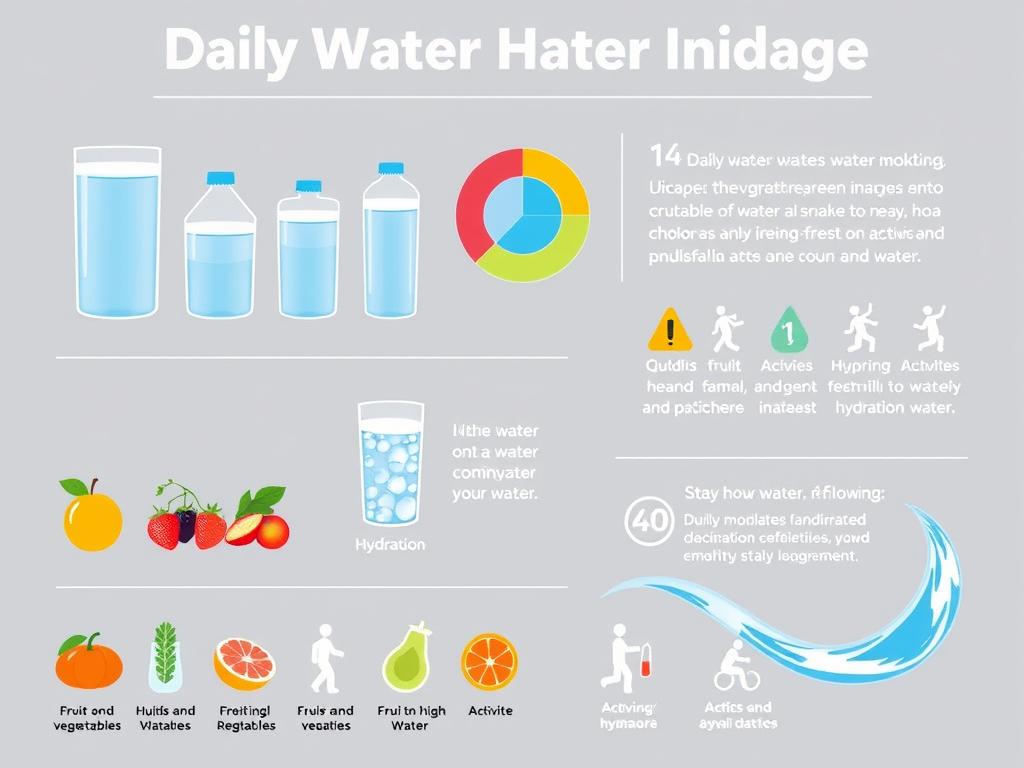
Signs of Dehydration to Watch For
Staying properly hydrated is essential for overall well-being, yet many people overlook the importance of recognizing the signs of dehydration. Understanding these symptoms can aid in prompt action, preventing unnecessary complications. Below, we explore the common signs and severe risks associated with dehydration.
Common Symptoms
Individuals may experience a range of symptoms as their bodies begin to show signs of dehydration. Key indicators include:
- Excessive thirst
- Dry mouth and lips
- Dark yellow urine (indicative of concentration)
- Fatigue
- Dizziness or lightheadedness
- Muscle cramps
To maintain optimal hydration levels, active individuals should drink at least 16 to 20 ounces of fluids one to two hours before engaging in outdoor activities. During such activities, it is advisable to consume six to 12 ounces of fluid every 10 to 15 minutes. Recognizing these signs early can be instrumental in reversing dehydration.
Severe Dehydration Risks
Failure to stay properly hydrated can lead to more severe consequences. Advanced symptoms indicate a serious level of dehydration and may include:
- Confusion and disorientation
- Rapid heartbeat
- Fainting
- Low blood pressure
In extreme cases, individuals may become susceptible to heat injury and additional severe health issues. It’s critical to be proactive about hydration, especially during hot weather and physical exertion. Keeping an eye on these signs of dehydration can ensure timely intervention and better health outcomes. For more information, please refer to understanding dehydration causes and symptoms.
The Role of Water in Weight Management
Water plays a vital role in hydration and wellness, especially concerning weight management. Understanding how hydration impacts metabolism and appetite can empower individuals on their weight loss journeys. Adequate water intake can enhance metabolic processes, aiding the body in effectively managing weight.
Hydration and Metabolism
Staying hydrated significantly influences metabolism. The human body, composed of approximately 60% water, relies on proper hydration to function optimally. Studies indicate that individuals who consume increased amounts of water experience enhanced lipolysis, which is the breakdown of fats for energy. This translates to improved calorie burning. For instance, drinking cold water may boost energy expenditure, leading participants to burn 2–3% more calories after consumption. Moreover, simply drinking two glasses of water before meals can reduce food intake by 22%, demonstrating water’s potential role in controlling calorie intake.
Water’s Impact on Appetite
Water serves as a natural appetite suppressant, helping individuals feel fuller and more satisfied. Research reveals that water consumption can curb appetite, leading to lower caloric intake. In an eight-week study, participants who drank 500 mL of water before meals experienced significant weight loss alongside reduced body fat and body mass index. Hydration supports the body’s detox processes, promoting healthier skin and overall well-being, which are vital components of consistent weight management. Additionally, replacing high-calorie beverages with water can lead to more sustainable weight loss results. For example, swapping one 20-ounce soft drink with water can save a substantial 250 calories.
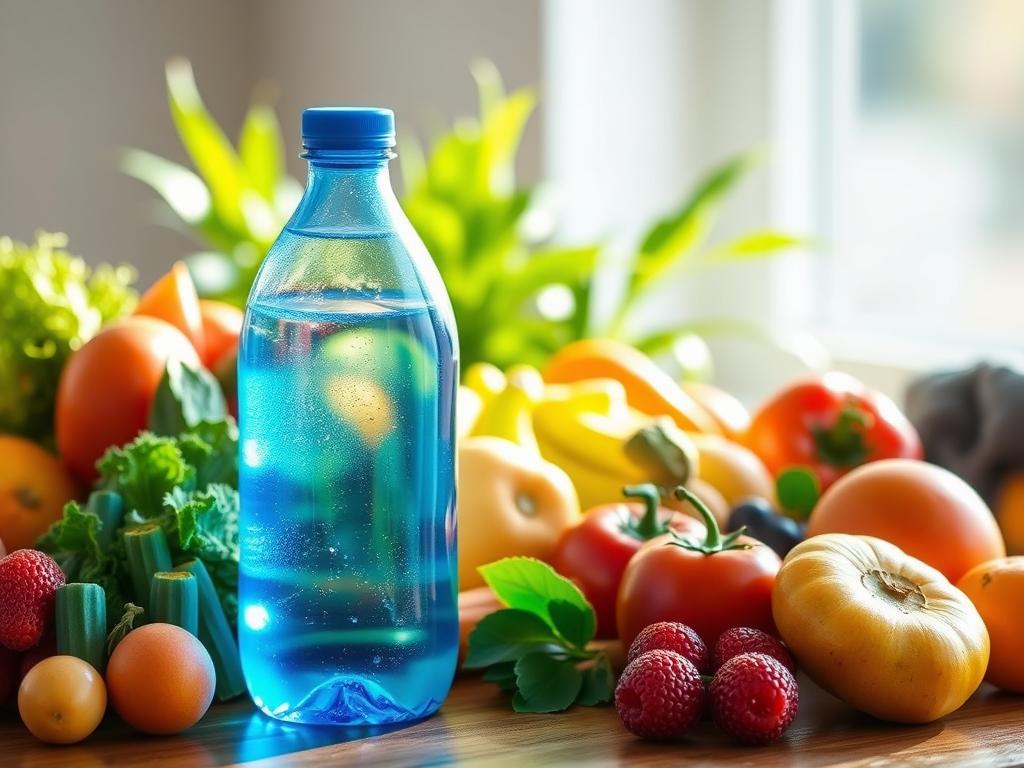
Hydration Sources Beyond Just Water
Maintaining hydration is essential for overall health. While water remains the primary source of hydration, various foods and beverages contribute significantly to daily fluid intake. Understanding these hydration sources can enhance overall well-being, particularly when factoring in the nutritional benefits of different options.
Foods with High Water Content
Certain foods for hydration can provide a refreshing way to boost fluid levels. Fruits and vegetables, in particular, have impressive water content:
- Watermelon: Comprising about 92% water, it’s not just a delicious summer treat but also a champion among hydration sources.
- Cucumbers: These crunchy veggies contain around 95% water, making them a perfect addition to salads or snacks.
- Oranges: With roughly 86% water, citrus fruits not only hydrate but also provide essential vitamins.
In fact, the water content range for selected foods shows that fat-free milk, cantaloupe, and strawberries contain 90-99% water. Including these in your diet can contribute significantly to hydration.
Other Beverages That Hydrate
Besides water-rich foods, various beverages can serve as effective hydration sources. Herbal teas, smoothies, and flavored waters all help in maintaining fluid balance. Gentle on the stomach and free from caffeine, herbal teas can offer hydration without the diuretic effects associated with sugary or caffeinated drinks. A well-crafted smoothie can blend fruits, vegetables, and proteins, providing both hydration and essential nutrients.
Being mindful of hydration choices remains crucial. Certain beverages may seem refreshing but carry hidden drawbacks. Limiting sugary drinks and caffeine helps avoid potential dehydration. By opting for nutritious and hydrating foods along with wholesome beverages, anyone can improve their hydration status while enjoying delicious options.
Myths About Water Consumption Debunked
Water consumption myths often cloud understanding of true hydration needs. One common misconception is the rule of drinking “eight glasses a day.” Researchers in 2002 found no rigorous evidence supporting this claim. Hydration requirements vary greatly based on individual factors such as age, activity level, and diet. For example, about 20% of an individual’s fluid intake comes from foods like fruits, vegetables, and even pasta. This illustrates how the notion of a one-size-fits-all water intake standard misses the mark.
The “Eight Glasses a Day” Rule
Though many believe in the necessity of eight daily glasses, studies indicate this guideline overlooks personal fluid needs. The National Academy of Medicine recommends that men consume 13 cups and women 9 cups of fluids daily, especially for those aged 51 and over. It’s essential to recognize that hydration is not solely about drinking plain water; beverages and food also contribute significantly. This highlights the importance of tailoring water intake to individual circumstances rather than adhering to a rigid rule. For more insights on hydration, check this resource.
Myths About Thirst
Another hydration misconception is ignoring thirst as a reliable signal. Dehydration can begin when fluid levels drop by 2-3% of body weight before thirst sets in. Moreover, dark-colored urine is not always a definitive marker of dehydration. It may indicate that the kidneys are preserving water for balance. While some studies suggest drinking water before meals may aid weight loss by creating a feeling of fullness, results differ among age groups. By understanding these hydration misconceptions, it becomes clear that individual needs dictate fluid intake rather than strict adherence to myths.
Tips for Increasing Your Water Intake
Integrating hydration into your daily routine can vastly improve your chances of meeting recommended daily intake levels. One of the simplest tips for staying hydrated is to always carry a reusable water bottle with you. This not only serves as a reminder to drink more but also encourages you to take sips throughout the day. Setting alarm reminders at regular intervals can be an effective way of prompting you to pause and hydrate. Moreover, begin your day by drinking a glass of water upon waking—this helps kickstart your hydration right from the start.
Easy Ways to Remember to Drink More
For many, the taste of plain water can feel monotonous. Consider flavoring your water with fresh fruits, herbs, or even a splash of lemon or lime for variety. Infused water can be a delightful way to enhance your daily water intake and can encourage you to drink more. Additionally, incorporating hydrating foods such as cucumbers, strawberries, and lettuce into your meals not only contributes to your fluid intake but makes healthy eating easier and more enjoyable. Goals can also serve as a motivational tool; set a daily water intake target that fits your lifestyle, making adjustments as needed to suit your unique needs.
Flavoring Your Water for Variety
It’s important to keep monitoring your hydration status as well. A quick and straightforward way to assess whether you are drinking enough is by checking the color of your urine—aim for light yellow. This simple tip can provide valuable insight into whether you’re staying adequately hydrated. Remember, every little step counts when it comes to enhancing your daily water consumption, and consistent small changes can lead to lasting benefits for your health. With these tips for staying hydrated, you are well on your way to achieving your hydration goals!

